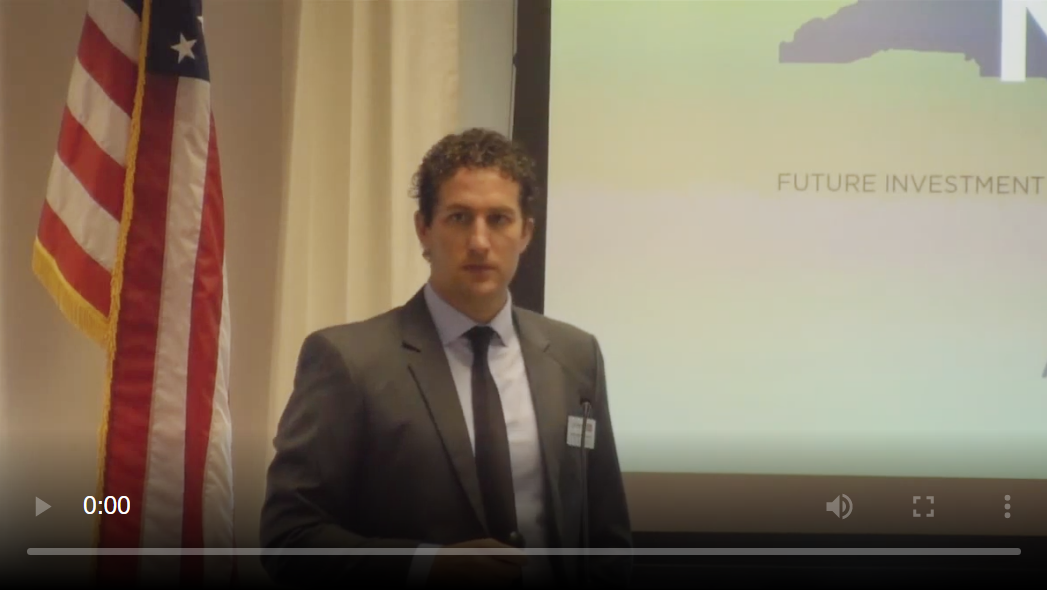
Dr. Daniel Findley presents the results the Public Perception of Transportation Fees study to the NC First Commission.
Population Growth and Gas Tax Uncertainty Heightens NC Funding Issues
The North Carolina Department of Transportation (NCDOT) provides transportation services across the state for a variety of functions and uses, including highway and roadway construction and maintenance, operation of airports, railroads, transit, ferry system, and bicycle and pedestrian infrastructure. Like many states, North Carolina’s funding to support these services is strained due to long-term gas tax revenue sustainability and fuel source and economy innovations in the automobile market.
The growing gap between needs and available transportation revenue is not a problem specific to North Carolina. Since 2012, 35 states, including North Carolina, have taken some form of legislative action to increase transportation funding. The growing gap between needs and revenue continues to increase as tax revenues drop due to the increasing fuel efficiency of vehicles, leaving the motor fuel tax insufficient to cover the full needs of the state.
It is projected that the North Carolina population will increase more than 25 percent, from 10.3 million residents to 12.8 million residents, by 2035. This growth will create additional demand and funding needs for the state’s transportation infrastructure, further overstretching current funding mechanisms. In response to this issue, NCDOT Secretary Jim Trogdon created the NC First Commission in March 2019. The committee is comprised of 14 North Carolina leaders with expertise in public policy, finance, and business, and is tasked with assessing the current state of transportation funding in the state along with current and future transportation needs.
In August, the ITRE Economics and Policy Group presented the results of a study on Public Perception of Transportation Fees in North Carolina to the commission. The study included a statewide survey commissioned by the NCDOT to better understand how the public perceives transportation taxes and fees. Our group found that the majority of North Carolinians support increasing transportation funding and have a preference for the gas tax. There also appears to be support for a diverse portfolio of funding sources, such as using motor vehicle and drivers’ license fees, a highway use tax, and a fee based on the amount of miles driven.
Despite this, North Carolinians are split over whether road funding should come from general taxes or usage-based fees. There were also few major differences in preference and opinion between demographic groups. Interestingly, this study showed that North Carolinians in both rural and urban areas share many common opinions when it comes to transportation funding in the state. This presentation can help the NC First Commission understand how the public perceives the current state of transportation funding, and how they might react to new funding mechanisms.